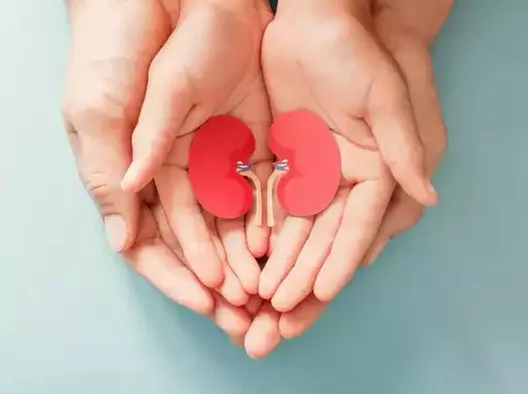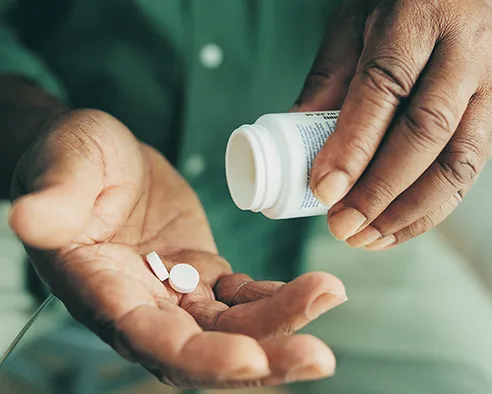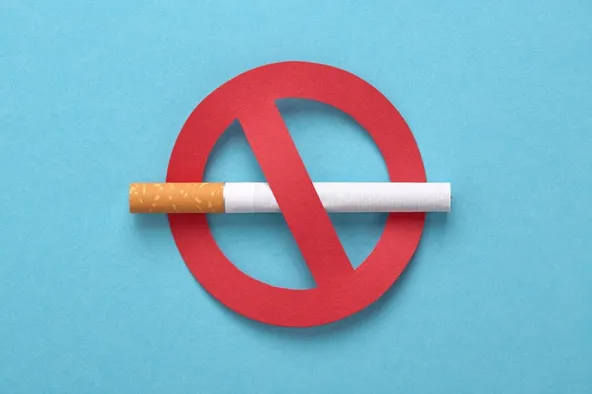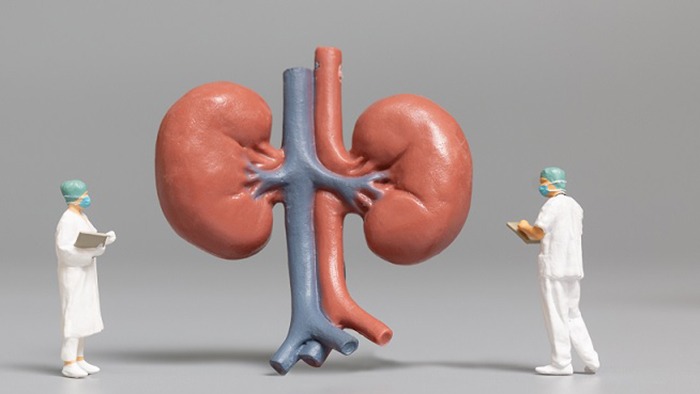Welcome to another edition of MedChunk’s Health Bulletin where we strive to make health topics easy to understand. In today’s edition, we’ll take a look at some tips to improve kidney function.
The kidneys are two reddish-brown bean-shaped organs found in vertebrates. By comparing the amount of creatinine in your blood with a standard normal amount, your healthcare provider can get a good idea of how well your kidneys are working.
Creatinine is a waste product that comes from the normal wear and tear on muscles of the body. Everyone has creatinine in their bloodstream. Creatinine is formed by the hydrolysis of creatine and phosphocreatine in muscle and by ingestion of meat.
Your body produces creatinine at a constant rate all the time, and healthy kidneys remove almost all of this creatinine.
Kidneys perform several functions. They filter waste products, excess water, and other impurities from your blood. These waste products are later expelled through urine.

Kidney function can be improved by :
- Avoiding Pain Pills
NSAIDs can cause kidney damage. NSAIDs work like corticosteroids (also called steroids), without many of the side effects of steroids. Kidneys need a strong blood flow to work. NSAIDs reduce blood flow into and out of the kidneys.
In most cases, it takes years of daily use for NSAIDs to cause kidney damage. But, once CKD is present, NSAIDs can make it get worse faster. NSAIDs are a class of medications used to treat pain, fever, and other inflammatory processes.
There are many types of non-prescription (over-the-counter) and prescription NSAIDs. Talk to your doctor about treatment options for pain that won’t further harm your kidneys. If you take one tablet here and there and your kidneys still work, drink a full glass of water with it. People having a lumbar fusion surgery are typically advised not to take NSAIDs for at least 3 months after surgery due to concerns about the impact NSAIDs may have on bone healing.

- Eating Less Phosphorus.
Phosphorus can be found in foods (organic phosphorus) and is naturally found in protein-rich foods such as meats, poultry, fish, nuts, beans, and dairy products. Weak kidneys can’t remove as much phosphorus from your blood. When your levels are too high, your bones can become weak.
Your kidney doctor may order a medicine called a phosphate binder for you to take with meals and snacks. This medicine will help control the amount of phosphorus your body absorbs from the foods you eat.
- Maintaining acid-base balance.
Our body maintains pH balance through respiration, excretion, and other metabolic activities. Thus kidneys and lungs help to maintain blood pH. A healthy blood pH is between 7.38 and 7.42.
Your lungs and kidneys are the two most important organs that work to keep your pH balanced. When the kidneys don’t work well, they can fail to keep the acid-base balance in your body. Acid can build up from the protein foods you eat.
The blood’s acid-base balance is precisely controlled because even a minor deviation from the normal range can severely affect many organs. Your body needs protein for muscles and self–repair. But, most of us eat a lot more protein than we need. A low-acid diet (with lots of veggies) is one way to help kidneys last longer.
- Lose Weight
The more people weighed, the faster their kidney function fell. This is true even if you do not have diabetes or high blood pressure. Being overweight can directly affect your kidneys, too. The extra weight forces the kidneys to work harder and filter wastes above the normal level. It’s hard to lose weight, but it can be done, and there are many ways that can work. Ask for help from your care team if you need it.
- Reduce salt intake
High sodium consumption (>2 grams/day, equivalent to 5 g salt/day) contribute to high blood pressure and increases the risk of heart disease and stroke.
A high salt intake has been shown to increase the amount of protein in the urine which is a major risk factor for the decline of kidney function. Most people consume too much salt—on average 9–12 grams per day, or around twice the recommended maximum level of intake.
- Moderate protein consumption
High protein intake may lead to increased intraglomerular pressure and glomerular hyperfiltration. This can cause damage to the glomerular structure leading to or aggravating chronic kidney disease (CKD). The more protein waste that needs to be removed, the harder the kidneys need to work to get rid of it. This can be stressful for your kidneys, causing them to wear out faster.
- Manage blood sugar levels
High blood glucose, also called blood sugar, can damage the blood vessels in your kidneys. When the blood vessels are damaged, they don’t work as well. It’s important to keep your blood sugar levels in your target range as much as possible to help prevent serious health problems, such as heart disease and kidney disease.
- Exercise regularly
Exercise is important for people with chronic kidney disease (CKD) because when your kidney function has decreased, it can affect your muscles and your bones. Although not a cure for kidney disease, fitness can reduce further kidney damage by keeping the rest of the body functioning at peak and improving quality of life.
- Quit smoking

Smoking slows the blood flow to important organs like the kidneys and can make kidney disease worse. Smoking tobacco is both a physical addiction and a psychological habit. Eliminating that regular fix of nicotine causes your body to experience physical withdrawal symptoms and cravings. Accumulating the clinical evidence suggests that cigarette smoking has a negative effect on the renal function

